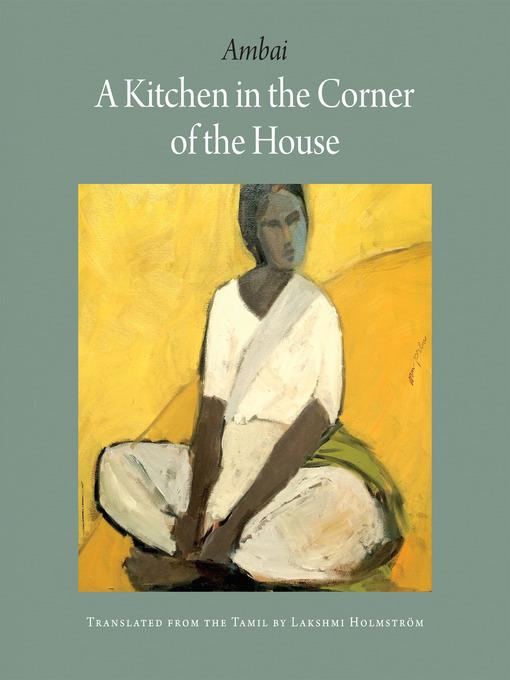
A Kitchen in the Corner of the House
فرمت کتاب
ebook
تاریخ انتشار
2019
نویسنده
Lakshmi Holmströmناشر
Steerforth Pressشابک
9781939810458
کتاب های مرتبط
- اطلاعات
- نقد و بررسی
- دیدگاه کاربران
نقد و بررسی

August 1, 2019
A feminist Tamil writer explores the dreams and challenges of women's lives. Ambai (A Meeting on the Andheri Overbridge, 2016, etc.), the pseudonym used by researcher and educator Dr. C.S. Lakshmi for her fiction, evokes in sensuous, vibrant prose the colors, flavors, and sounds of Indian life in a collection of 21 stories translated by Holmström. The clash between tradition and modernity, the embrace of family and the desire for independence, the lure of transgression and of nostalgia, and the fraught meaning of freedom: These recur as themes in many stories that examine a woman's struggle to define her identity in changing times. In "Wheelchair," for example, Hitha is frustrated in her relationship with a self-proclaimed political revolutionary. "There is no difference whatsoever between a revolutionary and any other man when it comes to treading upon women," Hitha asserts. She is looking for love; he tells her that love is a bourgeois disease. She listens to love songs; he criticizes them as "sentimental nonsense." She wants to be cherished and, at the same time, is seduced by the idea of freedom. In the charming tale "Parasakti and Others in a Plastic Box," a woman living in America, devastated by her recent divorce, is visited by her mother, who carries with her several miniature idols in a plastic box. Cooking traditional dishes, singing Tamil songs, and befriending neighbors, she exudes warmth and solace for the daughter who feels disconnected from her past. For some women, journeys--meaningful, necessary, planned, or spontaneous--end in epiphany; others find contentment at home. The title story, for example, takes place in a kitchen that, Ambai stresses, "was not a place; it was essentially a set of beliefs" propagated by women who sit in the shadows, their heads covered, kneading dough or stirring fragrant spices into dal. Yet Ambai upends the image of oppression: The women who make food appear "as from a magic carpet" reign in their kingdom of the kitchen, where they shape their families' lives. Fresh, graceful stories create a palpable world.
COPYRIGHT(2019) Kirkus Reviews, ALL RIGHTS RESERVED.

September 2, 2019
The women in Ambai’s captivating and frequently moving collection navigate family relationships and historical dramas with grace. In “Wheelchair” and “The Calf that Frolicked in the Hall,” set in the 1970s, young Indian women begin to study and work only to find that their revolutionary ideals are at odds with the retrograde realities of their personal lives. Yet tradition can be a source of renewal and strength, as in the excellent “Parasakti and Others in a Plastic Box,” in which the indomitable Amma travels from India to the U.S. to visit her daughter, Bharati, after Bharati’s divorce: Amma “isn’t just an individual, she’s an institution.” Several stories, including the nostalgic “In the Forest, a Deer” and the brief “Yellow Fish,” deal with the sorrows of women without children, while others address the challenges of those struggling for control within their relationships, such as the talented musician in “Wrestling.” All of these are united by an ultimate insistence on their dignity: “Can I keep from changing, just for the sake of your illusions?” Ambai uses epistolary exchanges, tales from the Ramayana, and impressionistic sketches to track whole generations of families, as well as to describe the compressions and elisions of memory. Readers will be impressed by the variety of these stories and invested in the characters’ lives.

























دیدگاه کاربران